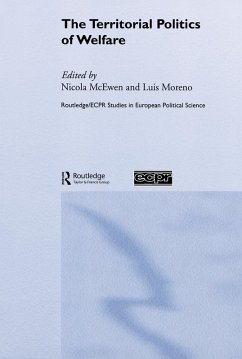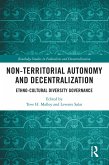It analyzes for the first time, in a highly systematic fashion, European integration as transnational political society formation in a common political space.
Four conceptual chapters discuss different approaches to studying European 'transnationalization' including networks and socialization. Six empirical chapters provide in-depth studies of different aspects of this process and policy fields ranging from European party networks and university collaboration to informal economic governance in the Eurozone and police collaboration across borders.
This book redresses the excessive concentration in EU research on supranational policy-making and inter-state bargaining. It will be of great interest to political scientists as well as contemporary historians, sociologists and lawyers.
Dieser Download kann aus rechtlichen Gründen nur mit Rechnungsadresse in A, B, BG, CY, CZ, D, DK, EW, E, FIN, F, GR, HR, H, IRL, I, LT, L, LR, M, NL, PL, P, R, S, SLO, SK ausgeliefert werden.









